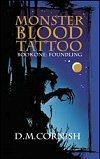 6046418967271574327.jpg
6046418967271574327.jpg
 6046418967271574327.jpg
6046418967271574327.jpg
 "Surviving" Adolescence : Apocalyptic and Post-Apocalyptic Transformations In Young Adult Fiction
Kelvin Grove
:
2010
Z1761971
2010
single work
thesis
"Surviving" Adolescence : Apocalyptic and Post-Apocalyptic Transformations In Young Adult Fiction
Kelvin Grove
:
2010
Z1761971
2010
single work
thesis
'This study, entitled "Surviving" Adolescence: Apocalyptic and post-apocalyptic transformations in young adult fiction", analyses how discourses surrounding the apocalyptic and post-apocalyptic are represented in selected young adult fiction published between 1997 and 2009. The term ―apocalypse‖ is used by current theorists to refer to an uncovering or disclosure (most often a truth), and post-apocalypse means to be after a disclosure, after a revelation, or after catastrophe.
'This study offers a double reading of apocalyptic and post-apocalyptic discourses, and the dialectical tensions that are inherent in, and arise from, these discourses. Drawing on the current scholarship of children‘s and young adult literature this thesis uses post-structural theoretical perspectives to develop a framework and methodology for conducting a close textual analysis of exclusion, un-differentiation, prophecy, and simulacra of death. The combined theoretical perspectives and methodology offer new contributions to young adult fiction scholarship.
'This thesis finds that rather than conceiving adolescence as the endurance of a passing phase of a young person‘s life, there is a new trend emerging in young adult fiction that treats adolescence as a space of transformation essential to the survival of the young adult, and his/her community.'
Source: QUT ePrints.
 "Surviving" Adolescence : Apocalyptic and Post-Apocalyptic Transformations In Young Adult Fiction
Kelvin Grove
:
2010
Z1761971
2010
single work
thesis
"Surviving" Adolescence : Apocalyptic and Post-Apocalyptic Transformations In Young Adult Fiction
Kelvin Grove
:
2010
Z1761971
2010
single work
thesis
'This study, entitled "Surviving" Adolescence: Apocalyptic and post-apocalyptic transformations in young adult fiction", analyses how discourses surrounding the apocalyptic and post-apocalyptic are represented in selected young adult fiction published between 1997 and 2009. The term ―apocalypse‖ is used by current theorists to refer to an uncovering or disclosure (most often a truth), and post-apocalypse means to be after a disclosure, after a revelation, or after catastrophe.
'This study offers a double reading of apocalyptic and post-apocalyptic discourses, and the dialectical tensions that are inherent in, and arise from, these discourses. Drawing on the current scholarship of children‘s and young adult literature this thesis uses post-structural theoretical perspectives to develop a framework and methodology for conducting a close textual analysis of exclusion, un-differentiation, prophecy, and simulacra of death. The combined theoretical perspectives and methodology offer new contributions to young adult fiction scholarship.
'This thesis finds that rather than conceiving adolescence as the endurance of a passing phase of a young person‘s life, there is a new trend emerging in young adult fiction that treats adolescence as a space of transformation essential to the survival of the young adult, and his/her community.'
Source: QUT ePrints.